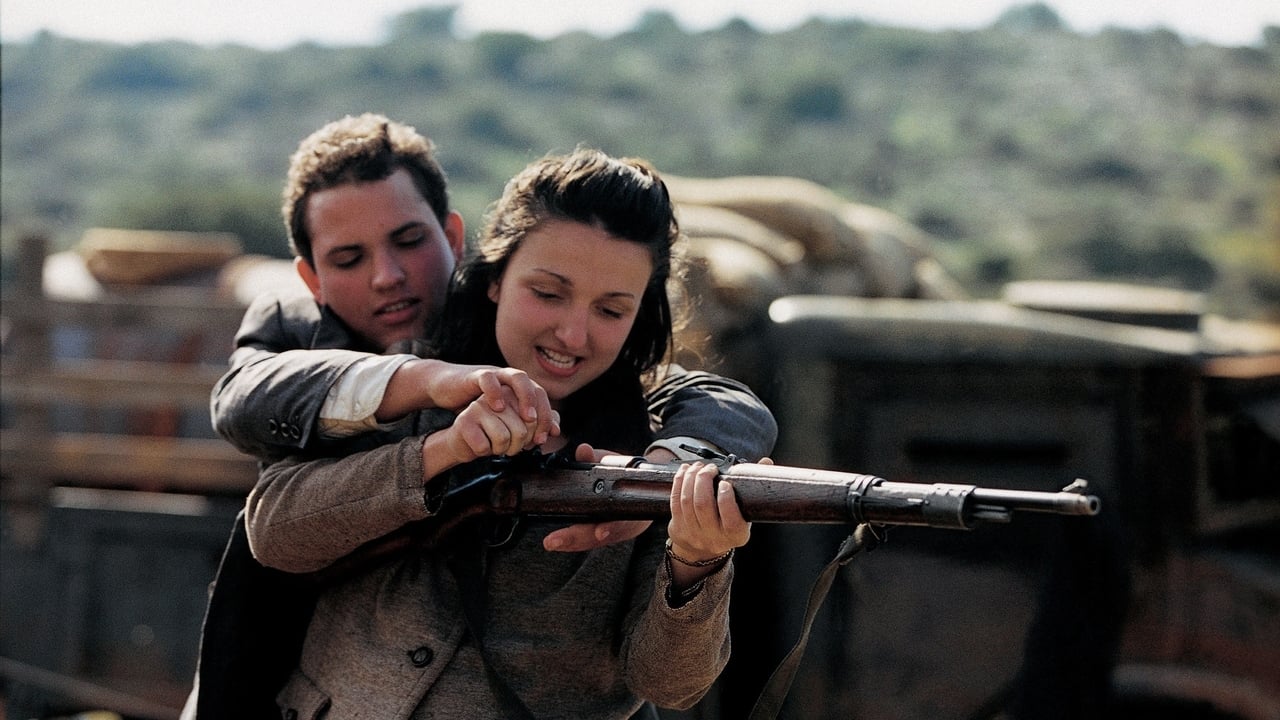

Nice effects though.
... View MoreIt's a mild crowd pleaser for people who are exhausted by blockbusters.
... View MoreIt really made me laugh, but for some moments I was tearing up because I could relate so much.
... View More.Like the great film, it's made with a great deal of visible affection both in front of and behind the camera.
... View MoreKedma is not really about 1948. It uses that setting to dramatize the irresolvable conflict in Israel that if anything has increased today. It's a retrospective prophecy, explaining what's going on there now by purporting to reveal its roots.The opening scene suggests that Israel allows no personal retreat from the community's situation. An ostensibly personal moment turns out to be most public. The first shot is a woman's back as she prepares to drop her cotton slip and join her lover Yanush (Andrei Kashkar) in bed. When he shortly leaves her we see this intimacy has occurred not in private but in a crowded below-deck on the refugee ship. In the camera's slow track through the surprising crowd the personal story dissolves into the national.The film shifts from the romantic promise of that first shot into the absurdities and shock of war. The refugees -- hungry, tired, all their possessions in a bag or suitcase -- disembark into a shooting match between a hapless British military unit determined to keep Jewish refugees out of their mandate and a small, armed unit of Israelis trying to help them in.In a very reticent film, two passionate speeches carry the core: a victimized Arab's and a disillusioned Polish Jew's. Gitai gives equal consideration to the Jewish refugees and to the Arabs they displaced. For more see yacowar.blogspot.com.
... View Morei must say that i am surprised. i didn't want to see that movie because i assumed that if it was created by Amos gitai i shouldn't expect to enjoy it.i saw kipur before and free zone and i didn't like it. but i must be honest that i actually cried in the movie because it is so sad and its very close to the story of my family. all of my family are Holocaust survivors.my grandmother and her husband and two children came to Israel on a ship.her husband was sent immediately to fight in the front in order to help the besieged Jerusalem and she never heard from him ever since.we finally found his grave 10 years after she past away.so i definitely sympathized with menachem and his girl. that was the realty for many Holocaust survivors that came to Israel and i think that this is what yanosh the main charged is lamenting when he says;*we have no history,the non-Jews did our history for us,not we,we would have never made it the way it was,we couldn't do anything to stop them*.the battle scenes in the movie are very realistic and exciting though very tragic .the common fighting of both man and women in the battle field is also very impressing. the way of fighting described in the movie is very typical for the war of independence and the fact that the camera is always on the attacking side and doesn't give a full picture of the battle zone or the view from the enemy angel and actually showing the viewer how a battle go in realty from the fighter point of view meaning allot of noise,yelling and screaming,explosions,confusion. this is very different from traditional war movies that show in different shots one side action and the other side reaction like a soldier is shooting and then in the next picture you see an enemy soldier is getting hit on the other side and the noise and screaming is usual buffered.the surprising point of the movie is that the one of the main characters of the movie was in real life an Arab-Jew that was known for its anti-Israeli opinions but in the movie he play a brave Jewish fighter.on top of that the same fighter is talking to Arabs that flee the country and while doing so he repeat the Israeli opinion on the war that say that the Arabs that fled the country escaped it as oppose to the Arab view that claim that they were all physically depopulated by the Jews. gitai is also touching one the war myths about the 35 soldiers that were sent to transport food and medicine to Jerusalem and found and old arab man on the way and spare his life after a long moral argument among them self but after they realist him he called all the Arab villagers and they all came and killed the soldiers and mutiled their bodies.i recommend every one to see the movie,though i don't think that movie is better then *exodus*with Paul Newman and *giant shed* with kirk Douglas when it come to describe the war of independence.
... View MoreThis movie is terrible. This movie attempts to show the frustration of one Holocaust survivor having to fight again for his existence and homeland. Despite what could have been a good story line, this movie was neither a good story, nor was it a war story. First, Kedma has minimal dialog throughout the movie, and the dialog it does have it really pointless. Second, it has no action. Even the battle scene in the movie was boring. Amos Giati looks like he was just trying to stretch out the movie to make it a full-length feature rather than a short story. Third, the whole message of the movie seemed to be about the main character, Yanush's disillusionment with the Promised Land and God's promise of Messiah. He claims in the movie that the Jewish people have no history. If you read the Old Testament or Torah, the Jews have probably the longest and best-documented histories of any people. As for Messiah's coming, 2 Peter 3:9 says, "The Lord is not slow in keeping His promise, as some understand slowness. He is patient with you, not wanting anyone to perish, but everyone to come to repentance." If there was one scene to be salvaged from this movie, it was the Arab man, Yussuf Abu-Warda, showing his defiance of the Jews for taking his home. It is too bad there was not more to the movie than that one scene.
... View MoreI like this movie in many ways, mainly because it's honest portrayal of the creation of modern day Israel, and what happened so that nation could be born. Kedma is a powerful story of triumph in terms of surviving the Holocaust, and the story of another tragedy of those who had to endure war and more loss.The Palestinian situation is also well shown in an unbiased way. I was glad that their side of the story was shown; though by saying this I am not trying to be political. I am saying that in a war like this, both sides need to be heard to understand the tragedy of what was going on.Is this a great movie? Yes and no. The story simply dragged in too many points, spending too much time describing characters and situations. I am sure this was the director's intent and it does serve the story somewhat. I knew this wasn't going to be an action movie, however I was expecting a bit more then brief rare lines and over dramatic philosophizing. Most of the movie just seemed to empty.This would be a good movie for a class studying Israel. I would recommend it to anyone who has studied the history of the Jews and Israel.
... View More